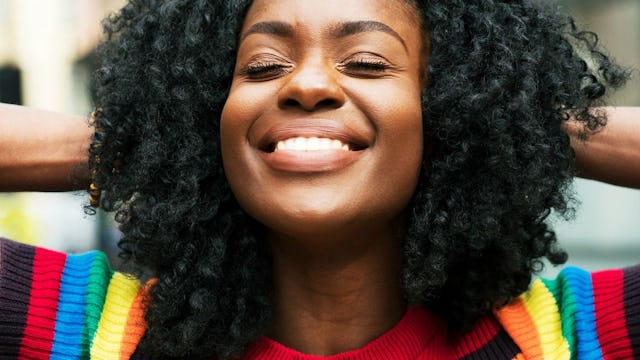I’m (Finally) Learning To Be Okay With Not Being Liked By Everyone

No matter how much we pretend otherwise, even the toughest among us seek the approval of others to some extent. There’s nothing wrong with wanting to feel like you belong and connect with others. There’s also nothing wrong with being self-aware and wanting to find your space in the world. But if we aren’t careful, the need to belong can become addictive. It comes at the cost of our individuality and, if we aren’t careful, we can lose all of ourselves.
I’ve spent much of my life thinking I exist outside of the realm of peer pressure. I’m pretty good at saying no when I’m uninterested. I’ll even be the first to dance at the party to break the ice. At the same time, I’m still learning to be okay with not being liked by everyone — especially when it comes to my online relationships and interactions.
I spend most of my day connected online — as a writer, I don’t have much of a choice. I’ve been sucked into the dopamine loop that comes with social media. The desire to have my posts liked, commented on, or shared leaves me religiously checking my phone and desktop. Social media fame often stems from likability, but recently, I’ve noticed a shift in myself as a result. I’ve changed.
And I distinctly remember the day I noticed the change — and realized it had to stop.
I’ve never been afraid of stirring the pot and saying things that others find controversial. In college, I’d watch my professors take a long slow exhale when my hand rose, afraid of the division my perspectives could cause during class discussions. And I was a strong supporter of playing devil’s advocate. When you love critical thinking as much as I do, you’re fine with taking the scenic route to knowledge and expect to lose a few people along the way.
My change towards people-pleasing was gradual. It started with a (white) relative negating the well-documented hair discrimination that many Black women, myself included, have experienced over the centuries. I was annoyed but pacified myself. It was fairly clear she hadn’t taken the time to read the work, which was littered with first-hand accounts of Black children, women, and celebrities having their futures threatened due to hair texture.
But it was harder to disagree with a loved one than with a stranger and I was exhausted with teaching others about racism. So, I silenced myself and aimed for a gentler form of calling out oppression. I’d toned down the impact of my message trying to make my white loved ones comfortable and the result was a painful internal conflict between personal relationships and living in my truth.
The more I softened my message, the softer people expected me to be. And before I knew it, I was working so hard to make others comfortable and happy that I wasn’t sharing my work — or my opinions — anymore. Suddenly, my work was less about “racism” and more about “hate”. The word “hate” made people comfortable — it absolved those who didn’t intentionally exercise their white privilege of guilt. The logic being that intention is a necessary dynamic of racism. But it isn’t.
I knew intention didn’t negate impact and it was important to speak on the ways our systems and institutions have left people of color vulnerable to oppression. You can’t be soft about institutional racism, and even though I had recently written a children’s textbook on the topic, I’d allowed other’s cultural blind spots to cause me to question my own lived reality.
By the time I realized what had happened, I was in a mild depression. It was painful waking up each day seeing patterns of long-term oppression for marginalized groups with my own eyes, but being told it was all in my head. If racism wasn’t real and the matters I’d been interested in since childhood were figures of my imagination, what did that make me? Was I real? Were the cultural experiences and peer-review journals real? Were my experiences as a Black woman in America real?
My desire to be liked — to make others comfortable — left me vulnerable to disillusionment. I’d been gaslighted by White America while seeking approval from my white loved ones. In the course of a few months, the damage was so deep I was moments away from giving up my career. I had to learn it’s okay to not be liked — and I had to learn it fast — especially when it comes at the cost of everything I am.
So I did what Black women do when the weight of the world is on our shoulders. I reached out to a trusted mentor (my former college professor) and I told her how the doubt and the pain I was feeling was impacting every aspect of my life. She reassured me my experiences were real and my pain was, unfortunately, a symptom of growing up in a white supremacist nation during a time of increased racial conflict. But the most important thing she reminded me was that you will never be liked by everyone when speaking out on injustice.
Public approval and social reform are at opposite ends of the spectrum of social change.
It felt like a rebirth. The weight of a million tons was lifted from my shoulder and I made the decision not to change who I was for anyone — whether it’s a member of my family, a friend, or a stranger on social media.
The experience taught me justice and accountability aren’t for everyone. But more importantly, that neither am I.
I’m finally learning to be okay with not being “liked” by everyone — online and in person.
This article was originally published on